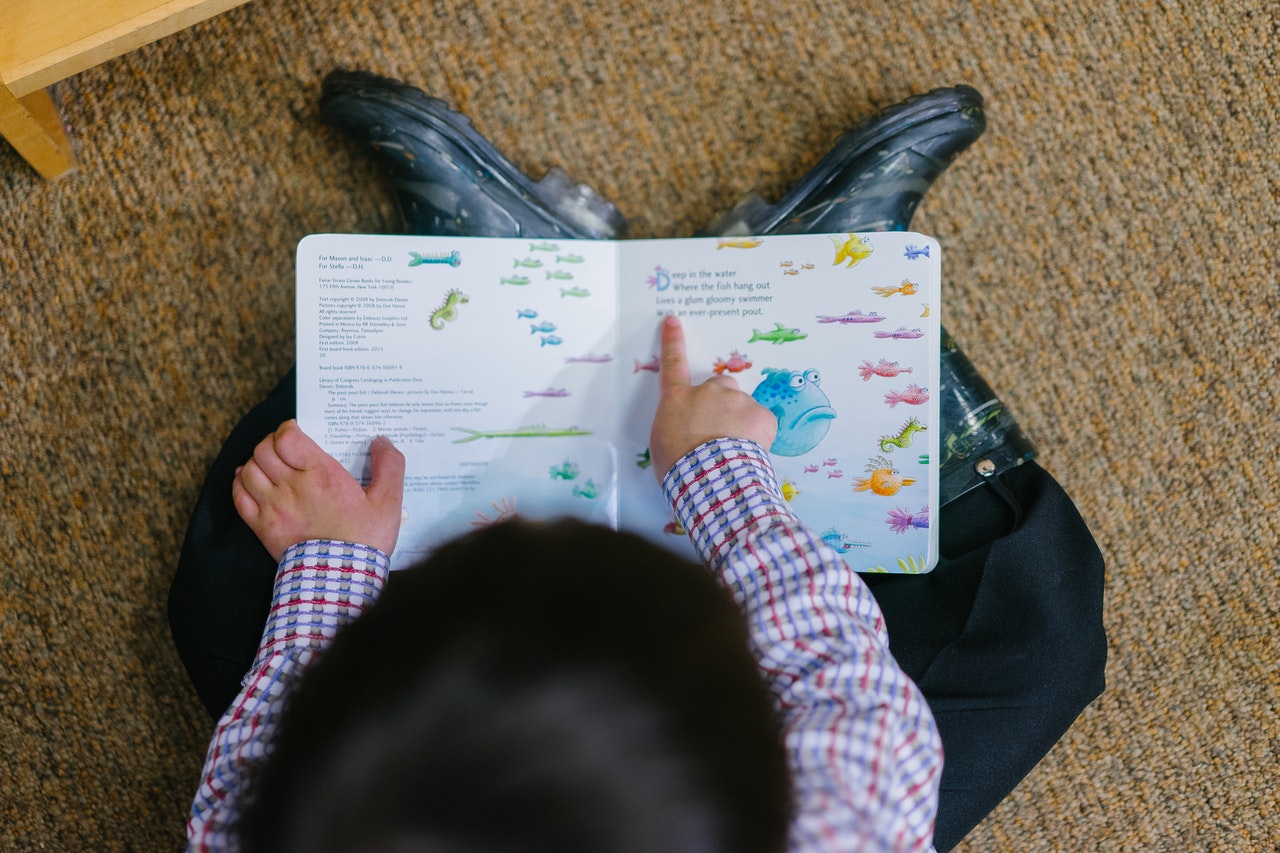It's common knowledge that kids should help in the house, but has anyone ever thought about paying them for their efforts? A financial incentive for doing chores around the house is a fantastic concept, in my opinion. And besides, they are helping out, therefore they should be recognised for it. Are you thinking something similar?
As mothers, we can attest to the truth of the adage, "The hand which rocks the cradle commands the world." From a young age, we instil in our kids a sense of accountability for both themselves and others, a reverence for private property, a love of the outdoors, and a desire to protect the environment. If we don't reward our kids for helping out around the house, how can we expect them to become responsible adults?
A lot of people have wondered this. Should you give your kid money for doing chores? And there is a wide range of perspectives on the issue. The answers vary; some say yes while others say no. Since there is no universally applicable solution, you must do what you think is ideal for your particular family.
If the child is mature enough and responsible enough to complete the tasks without supervision and if the family's budget can handle the extra cash flow, then the child should be compensated for their work. This is a great way to instil a sense of responsibility while also giving you some more cash to spend.
Compensation for Household Duties? An Explanation of the 5/50/500 Rule and Its Implications for Your Children
When should you start rewarding your children monetarily for helping around the house? Our initial reaction was a resounding "NOOOO!" Years later, after learning about the 5/50/500 money rule, we began to regret our original choice.
Our life, the earth, and the cosmos are all subject to a greater set of principles. Make, keep, and spend money are all subject to rules. In most situations, success and a more pleasant life result from an understanding of how to play even by rules. Going against the rules does have the opposite consequence.
Getting your kid set up for a successful adulthood on their own two feet financially might not be your first priority. But if you understood how the 5/50/500 rule would affect your finances, you'd want to get going right now. Here is where we first encountered this principle.
5/50/500 Rule
Steve's experience in the printing industry dates back to his days as a graphic designer. There, he learned from a salesman the ins and outs of changing types across the three stages of printing.
- Step One: A photo printer would first print out text from a typesetting machine. The text, borders, headlines, and/or images would then be pasted onto an artboard by a paste-up artist. Somebody in the office would check the proof before sending the job to print.
- Step Two: The printer then exposed the negative film to the artboard using a reproduction camera. This film would then be "stripped" onto an orange features a curved or flat with tape. At long last, a blue-line verification would be created out from negatives, and a printing plates would be scorched from the metal.
- Step Three: At long last, the printing plates would be mounted on the press, and printing would commence.
Since spotting an error in Step One would only cost $5 to rectify, the print salesperson advised Steve to proof the typeset material carefully. To correct a typo discovered in Step Two, though, will set you back $50.
Salesman paused, brow furrowed, and stated, "But if you notice a problem that once work is assigned to the press which is the step three, the machine will have to stopped, the pressman would be hanging there doing nothing, the print shop timetable will be delayed, and it would charge you around $500 an hour.
In other words, make sure to check your work for errors before submitting it.
Life's Golden Rule: 5/50/500 Defined
The price of learning most lessons in life tends to go up over time. One example would be:
- Throwing a five-minute timeout for a youngster who is having a temper tantrum may be necessary;
- A teen whose outburst gets him or her 50 minutes of punishment at school..
- A teenager who loses it and begins a fight, however, might face a criminal history plus 500 community service hours.
If you don't learn something, you'll pay more afterwards.
Should I Give My Children a Chore Allowance?
We all said "NO" when we initially started having children. Our family does not believe in paying youngsters to do chores.
Why then should we compensate them? We didn't get paid to clean the house, do the laundry, wash the dishes, or put our belongings away.
Altering One's Perspective
But as time passed, we noticed certain holes in our logic.
- Our children required instruction in financial management.
- At the ages of five and six, our children were too young to be a source of income. They were unable to find outside employment, and we had no intention of encouraging a sense of entitlement by paying them for doing nothing.
- Children need regular opportunities to practise their money skills, at least once per week.
We came to the conclusion that it was important for our children to learn about financial responsibility from a young age. In addition, we devised a means by which they could have a consistent income by assigning them daily jobs and allowing them to be compensated monetarily for their efforts.
Despite the meagre sum. And because their earnings were low, they were offered the opportunity to control those earnings.
Can I Trust My Children If I Pay Them An Allowance For Doing Chores?
We already discussed the rising price of an unlearned lesson, right?
But if we don't show our kids how to make and manage their own money, we'll have to keep footing the bill for whatever they want or need, and the price is just going to go up from here. Keep an eye out, because this may not appear to be a big deal if all they want are little toys that cost a few dollars.
Soon, you can expect to see price hikes. Your children will benefit from this as they acquire valuable life lessons. What they have learned is that kids can get whatever they want as long as they ask their parents for it.
At this point, satisfying your toddler's every whim will set you back $5. If you give in to his every whim and buy him whatever he wants, he'll eventually start thinking, "Every time I would like a toy, mom will purchase it for me." To avoid the never-ending increase of something like the 5/50/500 money rule, you must deal with that mindset immediately.
If you don't start educating your children about budgeting and saving when they're young (at the $5 stage), the cost will only go up from there. Some teenagers' ideal presents include new cars, $500 cell phones, and $50 footwear.
And what about the freshman who phone home to ask for a $5,000 credit card bailout? Like having your automobile fixed after an accident. Your parents answer the phone and take care of the bill payment.
Unfortunately, some adults in their twenties and thirties are financially reckless and end up returning home to ask their parents for help with things like paying off their mortgages or gaining custody of their children during a divorce. You'd be surprised at how commonplace such accounts actually are. At this point, you're talking about fifty thousand dollars. Oh, no. This is terrible news.
Parental Financial Support When Necessary
Of course, there seem to be times when our grown children and grandchildren need us to provide a safety nett for them. These include things like abusive relationships, life-threatening illnesses, and more. Make sure you are prepared to aid your children in these instances without encouraging unhealthy levels of dependence on you.
By teaching your children to be self-sufficient with money, you can protect yourself against the negative outcomes predicted by the 5/50/500 rule. So that they don't think of you as their personal ATM for the rest of their lives, here are five important financial abilities for kids to have.
Do You Think Kids Should Have Chores?
Children should, of course, be expected to help around the house. Kids learn responsibility through chores.
All homeowners need to know how to do things like empty the trash, vacuum the floor, and wash the windows. Unless, that is, they have enough money to hire people to do the work for them.
However, tasks are also a great way to teach youngsters the importance of hard work. That's why we rewarded our offspring monetarily for their efforts in the form of a chore allowance.
Working for parents teaches children valuable work ethic skills that will serve them well in the workplace. Our children experienced this.
They were skilled workers who put in long hours. Also, they were confident that their efforts would be rewarded. That's why whenever one of our kids became sick at work, their bosses always phoned them first.
Why do parents need to pay?
When we give our children monetary rewards for doing well in school or around the house, we essentially teaching them that these activities are valued because of the value we place on them as adults.
When we reward our children monetarily for a good job, we are introducing them to the concept of work for money and giving them a chance to practise it in a safe and manageable setting. When kids have some money coming in and going out regularly, it's simpler to start having frequent talks about how to strike a healthy balance between saving, spending, and donating.
Reasons to Avoid Payment
However, we don't want to send the message that our children should expect paid for every chore they complete around the house. Instead of being only extrinsically driven by the prise they've come to anticipate after, we hope that our children will be inspired to succeed by the satisfaction they'll get from their efforts and the pride they'll take in contributing to the success of their loved ones.
Some students will put in a tonne of effort but still only get a C, while others will coast through school with straight As and no textbooks at all. Further, children benefit from experiencing certain setbacks.
While it's possible that offering financial incentives for outstanding marks could encourage students to achieve those grades, the bigger advantage would be letting them fail without punishment.
These days' youth aren't always at ease with making blunders because of the pressures of today's competitive environment. And defeating it. Even if it means coming in second. However, it is crucial to be able to accept setbacks, take wisdom from them, and move forwards. Children will inevitably face adversity throughout their lives, so teaching them to cope now can serve them well later on.
Not only does the trash not take itself out, but neither does the child's allowance if the latter decides one week that taking it out isn't worth the money they would have gotten otherwise. A kid also isn't going to put their entire livelihood by avoiding their obligations, therefore there is a discrepancy between the real-world repercussions and the perception of them.
In Defense of Keeping Them Apart
Keeping the ideas of tasks and allowance distinct is one alternative that may be less popular, but is advocated by many parenting experts and was chosen by my own parents.
When asked how their children should earn their allowance, 83% of parents said they should do tasks. If you trust a stack of parenting books published in the last few decades, you'll know those parents are mistaken when they argue that an allowance are being used for education rather than financial incentive.
On the surface, it may seem like the incorrect message to give a child an allowance that isn't tied to doing household tasks, as adults are rarely given money on a daily basis for no apparent reason.
But we aren't talking about a huge chunk of money here; perhaps $5 weekly. It's more useful to view this as a means through which to instil in them the habits of spending sensibly, saving regularly, and generously sharing the proceeds with others, as I alluded to previously.
They are still learning the value of hard work at school and making a positive contribution to the family through their unpaid duties, which is great news.
Conclusion
The idea of offering a monetary reward for completing household tasks is brilliant. As a bonus, you'll have more money to spend, but more importantly, you'll be teaching your child responsibility. After learning how the 5/50/500 rule could effect your money, you'll want to get started immediately.
In a nutshell, the Golden Rule of Life is defined as 5/50/500. You'll have to spend more money in the end if you don't educate yourself first. Budgeting and saving are skills that should be instilled in children at an early age, as the alternative is a steeper learning curve and higher costs down the road. Teenagers' dream presents might range from brand new automobiles and $500 cell phones to $50 sneakers.
Your kids will grow up with some great lessons from this. Those in their twenties and thirties who are financially irresponsible often have to move back in with their parents. The 5/50/500 rule predicts bad financial consequences for those who don't teach their children financial independence. Five essential financial skills for youth are outlined below. Our children learn the value of hard effort and the exchange of labour for compensation from the time we start rewarding them economically for their achievements.
It's easier to teach youngsters about the importance of saving, spending, and giving when they have some disposable income coming in and going out on a regular basis. Many experts on raising children argue for a less common approach: keeping the concepts of chores and allowance separate. Rather than seeing this as a punishment, it can be seen as a tool to teach them to budget their money wisely, save consistently, and give freely to others in need.
FAQS ABOUT PAID CHORES
When kids complete their chores to a high standard without being paid for it, they tend to focus on the greater rewards of pride and fulfilment. It stands to reason that they will also be able to excel at their first minimum-wage job in the future.
Although some people only consider paid employment outside the home to constitute child labour, others include unpaid work, family work, and excessive household duties in their definitions of child labour because of the negative effects on children's health, education, and well-being that it has.
A child's character can be shaped by the completion of age-appropriate weekly chores, such as taking out the trash, emptying the dishwasher, folding clean laundry, cleaning the cat litter box, and light yard work, such as raking leaves. When people are compensated for their efforts, it teaches them the value of hard work and financial independence.
- Life skills can be taught through doing chores.
- Kids who do chores gain a sense of independence and responsibility.
- Teamwork is fostered through the completion of chores.
- Duties are a great way to teach responsibility and earn respect.
- The discipline and work ethic fostered by regular chores is invaluable.
- The ability to organise one's time and prioritise tasks is bolstered by doing chores.
Begin by being courteous and asking for what you want. Numerous parents brace themselves for an epic battle with their offspring.
Incorporate regular housework into your schedule.
Instruct them in the right way.
Make a business offer.
Give children the freedom to do what they want.
Try new things.
Content Summary
- It's common knowledge that kids should help in the house, but has anyone ever thought about paying them for their efforts?
- A financial incentive for doing chores around the house is a fantastic concept, in my opinion.
- Getting your kid set up for a successful adulthood on their own two feet financially might not be your first priority.
- The price of learning most lessons in life tends to go up over time.
- Our children required instruction in financial management.
- At the ages of five and six, our children were too young to be a source of income.
- Children need regular opportunities to practise their money skills, at least once per week.
- We came to the conclusion that it was important for our children to learn about financial responsibility from a young age.
- What they have learned is that kids can get whatever they want as long as they ask their parents for it.
- If you don't start educating your children about budgeting and saving when they're young (at the $5 stage), the cost will only go up from there.
- Of course, there seem to be times when our grown children and grandchildren need us to provide a safety net for them.
- Make sure you are prepared to aid your children in these instances without encouraging unhealthy levels of dependence on you.
- By teaching your children to be self-sufficient with money, you can protect yourself against the negative outcomes predicted by the 5/50/500 rule.
- Working for parents teaches children valuable work ethic skills that will serve them well in the workplace.
- When we give our children monetary rewards for doing well in school or around the house, we essentially teach them that these activities are valued because of the value we place on them as adults.
- When we reward our children monetarily for a good job, we are introducing them to the concept of work for money and giving them a chance to practise it in a safe and manageable setting.
- Instead of being only extrinsically driven by the prise they've come to anticipate after, we hope that our children will be inspired to succeed by the satisfaction they'll get from their efforts and the pride they'll take in contributing to the success of their loved ones.
- Further, children benefit from experiencing certain setbacks.
- While it's possible that offering financial incentives for outstanding marks could encourage students to achieve those grades, the bigger advantage would be letting them fail without punishment.
- However, it is crucial to be able to accept setbacks, take wisdom from them, and move forwards.
- Children will inevitably face adversity throughout their lives, so teaching them to cope now can serve them well later on.



